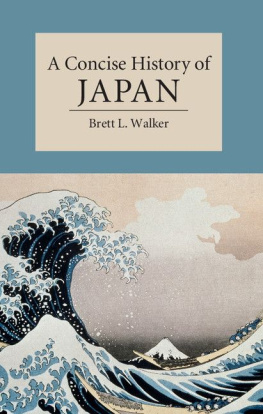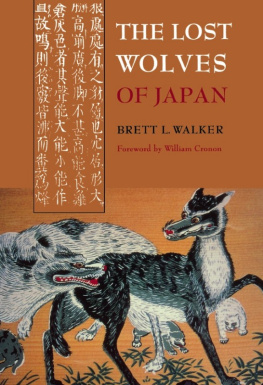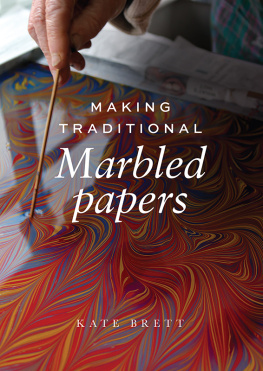Brett L. Walker - A Concise History of Japan
Here you can read online Brett L. Walker - A Concise History of Japan full text of the book (entire story) in english for free. Download pdf and epub, get meaning, cover and reviews about this ebook. year: 2015, genre: History. Description of the work, (preface) as well as reviews are available. Best literature library LitArk.com created for fans of good reading and offers a wide selection of genres:
Romance novel
Science fiction
Adventure
Detective
Science
History
Home and family
Prose
Art
Politics
Computer
Non-fiction
Religion
Business
Children
Humor
Choose a favorite category and find really read worthwhile books. Enjoy immersion in the world of imagination, feel the emotions of the characters or learn something new for yourself, make an fascinating discovery.
- Book:A Concise History of Japan
- Author:
- Genre:
- Year:2015
- Rating:5 / 5
- Favourites:Add to favourites
- Your mark:
- 100
- 1
- 2
- 3
- 4
- 5
A Concise History of Japan: summary, description and annotation
We offer to read an annotation, description, summary or preface (depends on what the author of the book "A Concise History of Japan" wrote himself). If you haven't found the necessary information about the book — write in the comments, we will try to find it.
A Concise History of Japan — read online for free the complete book (whole text) full work
Below is the text of the book, divided by pages. System saving the place of the last page read, allows you to conveniently read the book "A Concise History of Japan" online for free, without having to search again every time where you left off. Put a bookmark, and you can go to the page where you finished reading at any time.
Font size:
Interval:
Bookmark:
A Concise History of Japan
To this day, Japans modern ascendancy challenges many assumptions about world history, particularly theories regarding the rise of the West and why the modern world looks the way it does. In this engaging new history, Brett L. Walker tackles key themes regarding Japans relationships with its minorities, state and economic development, and the uses of science and medicine. The book begins by tracing the countrys early history through archaeological remains, before proceeding to explore life in the imperial court, the rise of the samurai, civil conflict, encounters with Europe, and the advent of modernity and empire. Integrating the pageantry of a unique nations history with todays environmental concerns, Walkers vibrant and accessible new narrative then follows Japans ascension from the ashes of the Second World War into the thriving nation of today. It is a history for our times, posing important questions regarding how we should situate a nations history in an age of environmental and climatological uncertainties.
BRETT L. WALKER is Regents Professor and Michael P. Malone Professor of History at Montana State University, Bozeman.
Cambridge Concise Histories
This is a series of illustrated concise histories of selected individual countries, intended both as university and college textbooks and as general historical introductions for general readers, travellers, and members of the business community.
A full list of titles in the series can be found at: www.cambridge.org/concisehistories
A Concise History of Japan
Brett L. Walker
Montana State University


University Printing House, Cambridge CB2 8BS, United Kingdom
Cambridge University Press is part of the University of Cambridge.
It furthers the Universitys mission by disseminating knowledge in the pursuit of education, learning and research at the highest international levels of excellence.
www.cambridge.org
Information on this title: www.cambridge.org/9780521178723
Brett L. Walker 2015
This publication is in copyright. Subject to statutory exception and to the provisions of relevant collective licensing agreements, no reproduction of any part may take place without the written permission of Cambridge University Press.
First published 2015
Printed in the United Kingdom by Clays, St Ives plc
A catalogue record for this publication is available from the British Library
Library of Congress Cataloguing in Publication data
Walker, Brett L., 1967 A concise history of Japan / Brett L. Walker, Montana State University.
pages cm Includes index.
ISBN 978-1-107-00418-4 (Hardback) ISBN 978-0-521-17872-3 (Paperback) 1. JapanHistory. I. Title.
DS835.W333 2015
952dc23 2014031651
ISBN 978-1-107-00418-4 Hardback ISBN 978-0-521-17872-3 Paperback
Cambridge University Press has no responsibility for the persistence or accuracy of URLs for external or third-party internet websites referred to in this publication, and does not guarantee that any content on such websites is, or will remain, accurate or appropriate.
ForLaTrelleContents
Illustrations
Maps
Preface
While I was writing the final chapters of this book in the autumn of 2013, Super Typhoon Haiyan smashed into the Philippines with all its fury. With sustained winds at 315 kilometres per hour (195 miles per hour) and highs hitting 380 kph, many observers called it the most powerful storm ever recorded. As people in the Philippines fended for their lives, I was writing a chapter on Japans bubble economy and lost decade, covering the stagnant years between 1990 and 2010. But the Pacific monster storm changed my plans. I had seen enough. I had already decided to cover the tragic events of 11 March 2011, when Japan suffered the triple disaster of a catastrophic mega-thrust earthquake and tsunami, and then a dangerous nuclear meltdown at the Fukushima Daiichi plant. Watching Super Typhoon Haiyan throttle the Philippines made me realize that the symptoms of climate change, not tepid economic growth and disgruntled youth, or even international disputes over the Senkaku (Diaoyu) Islands, represented the most serious challenge facing East Asia. In the end, I scrapped the last chapter and drafted a new one that included a history of climate change, sea level rise, Pacific super storms, and natural disasters in the context of what many geologists have come to call the Anthropocene Epoch. It represents an important departure from the conventional manner of telling Japanese history that is, it required fully embracing the idea that the physical islands called Japan are geologically and historically unstable.
Of the Anthropocene Epoch, the Geological Society of London has stated, A case can be made for its consideration as a formal epoch in that, since the start of the Industrial Revolution, Earth has endured changes sufficient to leave a global stratigraphic signature distinct from that of the Holocene or of previous Pleistocene interglacial phases, encompassing novel biotic, sedimentary, and geochemical change. Earth has indeed undergone novel changes, ones whose occurrences coincide with the advent of the Industrial Revolution. The important difference between the changes driving the Anthropocene and the previous Holocene Epoch, however, is that the principal causes of those changes are no longer wind, erosion, volcanism, or other naturally occurring forces. Rather, human beings are causing these changes. Though the naturally occurring forces that etched Earths surface were morally inert during the Holocene, moreover, basically valueless changes that just happened, there is an intent and design behind the forces of the Anthropocene. The Industrial Revolution, and all its assembled values, has served as the engine behind the bio-stratigraphic and litho-stratigraphic changes being carved onto our planet. If climate, elevation, and geographic location determined plant distribution during the Holocene, for example, as the famed Prussian scientist Alexander von Humboldt (17691859) famously observed, then our agricultural needs have determined it in the Anthropocene.
Therefore, rather than write a conventional national history, one that concludes with the economic, political, and foreign policy challenges facing Japan, I decided to conclude this book with the global threat of climate change. I came to believe that with the spectre of climate change looming so large on our collective planetary horizon, it would be equivalent to being in a state of denial to write a national history of a major industrial power, one that has contributed significantly to greenhouse gas emissions, without sustained attention to the short- and long-term environmental consequences of that countrys industrial decision-making. Think of it this way: Japan industrialized at the end of the nineteenth century, meaning that it has enjoyed the fruits of an industrial society for about a century and a half. If we look ahead a century and a half, that same duration of time, Earth is projected by some to warm by as much as ten degrees or more, making much of it uninhabitable by contemporary standards. Suddenly, in the Anthropocene, geologic time has accelerated. Japan has significant coastal development, with millions of people and trillions in investments scattered along its low-lying areas. In a century and a half, Japan will be a very different place than it is today, with much of those low-lying areas submerged or routinely flooded by storm surges and tsunami. Because of its roots in Fernand Braudels (190285) context of the historical longue dure , one lesson of environmental history is that the physical stage on which our past unfolds is unstable and dynamic, just like the human societies it supports and sustains. But climate change threatens to amplify that transformative process several fold.
Next pageFont size:
Interval:
Bookmark:
Similar books «A Concise History of Japan»
Look at similar books to A Concise History of Japan. We have selected literature similar in name and meaning in the hope of providing readers with more options to find new, interesting, not yet read works.
Discussion, reviews of the book A Concise History of Japan and just readers' own opinions. Leave your comments, write what you think about the work, its meaning or the main characters. Specify what exactly you liked and what you didn't like, and why you think so.





![Simon Brett [Simon Brett] - Mrs. Pargeter’s Point of Honour](/uploads/posts/book/142155/thumbs/simon-brett-simon-brett-mrs-pargeter-s-point.jpg)
![Simon Brett [Simon Brett] - Mrs. Pargeter’s Package](/uploads/posts/book/142153/thumbs/simon-brett-simon-brett-mrs-pargeter-s.jpg)




